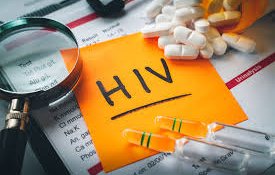South Africa’s fight against HIV/AIDS is being threatened as US funding cuts to the PEPFAR program start to take effect. With 7.7 million people living with HIV in the country, South Africa is one of the world's hardest-hit nations. For years, PEPFAR has been a crucial source of funding, providing antiretroviral drugs (ARVs) and supporting mobile health clinics, which have been vital for reaching vulnerable populations such as sex workers, migrants, and the poor.
The recent cuts, particularly under the Trump administration, have caused significant disruption. Many sex workers are already hesitant to seek treatment due to stigma, and these funding cuts could make it even harder for them to access ARVs. Prof. Lynn Morris, Deputy Vice-Chancellor at Wits University, warns that without adequate funding, South Africa could see an increase in new HIV infections and AIDS-related deaths, potentially reversing progress made over the past decade.
South African researchers have been at the forefront of global HIV treatment and vaccine development, including breakthroughs like PrEP (pre-exposure prophylaxis). However, these achievements are now at risk as funding dries up. Prof. Abdullah Ely, a researcher at Wits University, explains that clinical trials and other critical research projects may be delayed, setting back months, or even years, of progress.
In response to the funding shortfall, the South African government has secured alternative funding from organizations like the Bill and Melinda Gates Foundation and Wellcome Trust, but the amount is far less than needed. The 4.6 billion South African Rand request from local universities highlights the urgency of addressing the financial gap.
Experts worry that without further support, South Africa could lose its position as a global leader in HIV research, affecting not just its own population but the wider Sub-Saharan African region as well. The future of HIV prevention and treatment hangs in the balance, with the potential to undo much of the progress made in recent years.
